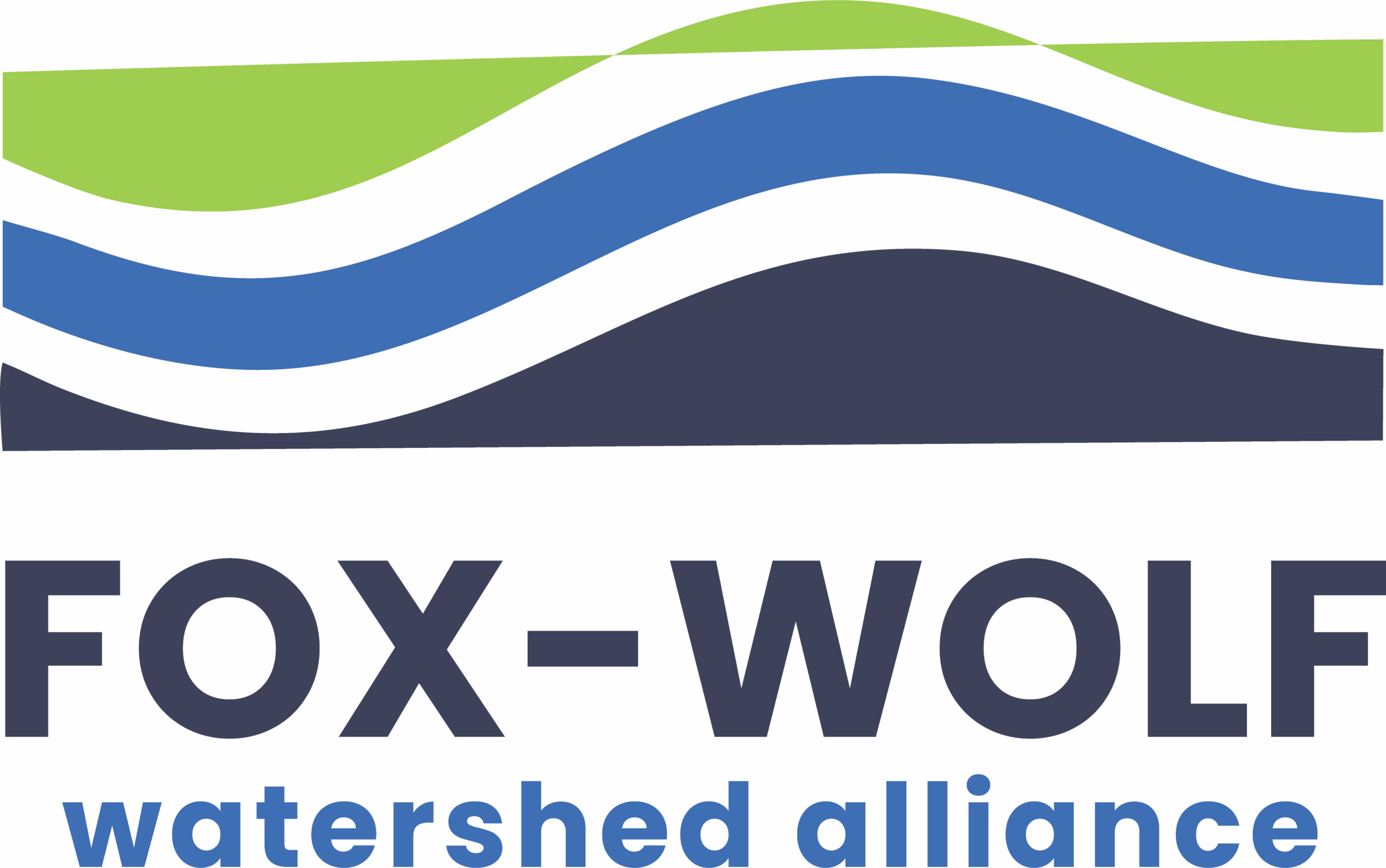
Ken and Megan Karth are citizen scientists, collecting data for use in assorted projects.
Ken Karth made a living making dirty water clean. “When I started working in the business, the Wisconsin River was a sewer,” he said. That was before the clean water act when industrial wastewater and raw sewage were commonly dumped into open rivers. In the last 50 years, that river has seen a 95% decrease in oxygen impairment in the water.
Eventually, Ken and Megan moved to the Fox Valley, and he noticed the same dedication to improving the water quality. He worked at Consolidated Paper, and there was political pressure to keep the mills running at high capacity. But there was also pressure to do the best job you could. The owner of the factory lived on an island in the Wisconsin River, so he was known to tell his employees “I want the river as clean as we can possibly get it!”
As volunteers with Fox-Wolf, Ken and Megan care deeply about our water quality. They’ve lived through polluted water and the process of cleaning up. But they’re aware of the current threats to our water, and they don’t want to see things get worse.
Looking out at the Fox River from Jefferson Park in Menasha, Ken said, “Water means so much here. You wouldn’t have the Fox Valley if you didn’t have water.” From recreation, to drinking water, to business, “it touches every aspect of our lives!”
Ken recalls that in his early days on the Wisconsin River, you could smell which walleye were local. The sulfides from the polluted water seeped into the fish. At a fish fry, the smell of sulfur would escape, and local fish never won the taste test competitions. The waters of the Fox-Wolf Watershed are considered a premiere walleye fishery, and Ken hopes it stays that way.
When Ken and Megan visit their daughter in Kewaunee County, they have to buy drinking water. Many residents of the county rely on untreated well water. The combination of a high density of farms and shallow soil mean they are constantly monitoring for unsafe water conditions.
“I don’t want that to be true here,” said Megan. “We don’t have to think a lot about turning on the tap. There are places that is such a luxury.” Megan is thinking not only about water safety, but the availability of water. In such a water-rich area of the country, Megan has “the luxury of not having to think about every drop. I can water my vegetable garden.”
To keep tabs on the water, Ken and Megan volunteer with Fox-Wolf. They check for invasive plants about three times a year, and once a month they take water samples. “We go on a nice day and pack a picnic lunch,” Megan said. They also help with planting and maintaining plots of native shoreline plants.
They love having a way to help that fits into their calendar. “The annual cleanup is a one-day thing, and that may not work for us,” Megan said. Collecting water samples “has a window, and we can work it around our own schedule.”
“Water connects everything,” Ken said. “You’re doing things we believe in, and we really like the people that we’ve met. We’re grateful for Fox-Wolf, that you’re there.”

Watershed Moments is a publication of Fox-Wolf Watershed Alliance, sharing the stories of how your donations have impacted lives in our community. Read our latest project updates, make a secure online donation, or become a member at www.fwwa.org
